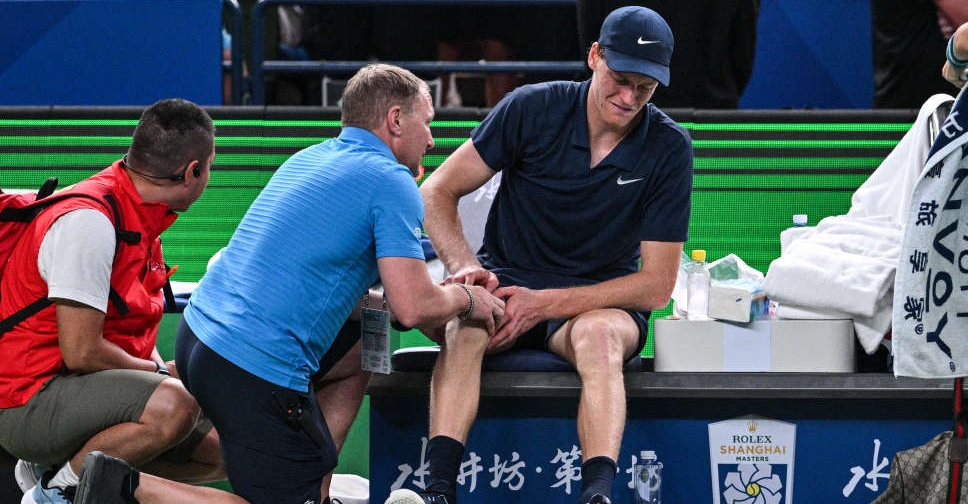
The governing body of men's tennis could consider a formal heat rule after a string of retirements at the Shanghai Masters this week blew the draw wide open, with top players wilting under soaring temperatures and punishing humidity.
World number two Jannik Sinner's title defence ended in agony on Sunday when the Italian struggled to walk due to cramp in his right thigh before he retired in the deciding set of his third-round clash with Tallon Griekspoor.
Novak Djokovic vomited during his encounter with Yannick Hanfmann while Holger Rune was heard asking an official during a medical timeout in his meeting with Ugo Humbert if players had to "die on court" amid the heat and humidity.
"It's the same for every player out on the court, but it's brutal," Djokovic said after he battled to victory. "It's brutal when you have over 80 per cent of humidity day after day, particularly for the guys when they're playing during the day with the heat, with sun, it's even more brutal."
Others including Casper Ruud, Tomas Machac, David Goffin, Terrence Atmane, Hamad Medjedovic and Wu Yibing were unable to pull through and retired mid-match due to illness or injury in the early rounds.
The temperature was at around 30 degrees Celsius throughout the opening rounds with the humidity soaring over 80 per cent at times.
SWELTERING CONDITIONS
The need for a formal ATP heat rule had sprung up in August in Cincinnati when Arthur Rinderknech collapsed on court during a match in sweltering conditions before handing Felix Auger-Aliassime the victory.
Under ATP regulations, decisions on the suspension of play due to adverse weather conditions - including extreme heat - lie with an onsite ATP supervisor who coordinates with medical teams at the venue as well as local authorities.
"In parallel, the ATP Medical Services team implements several measures in cases of extreme heat, to help protect player health during competition," the governing body told Reuters via email.
However, the elite body said it was open to change.
"This remains under active review and additional measures including the implementation of an official heat policy are currently being evaluated in consultation with players, tournaments, and medical experts," it added.
"Player safety remains a top priority for the ATP."
Several professional sports including football, Formula One and cycling have put in place formal policies to deal with extreme weather.
The ATP does not have to look beyond tennis for a framework, with the Grand Slams and the women's WTA formally implementing rules that allow for extended breaks and match suspensions.



 Samson guides India to T20 World Cup semis; South Africa beat Zimbabwe
Samson guides India to T20 World Cup semis; South Africa beat Zimbabwe
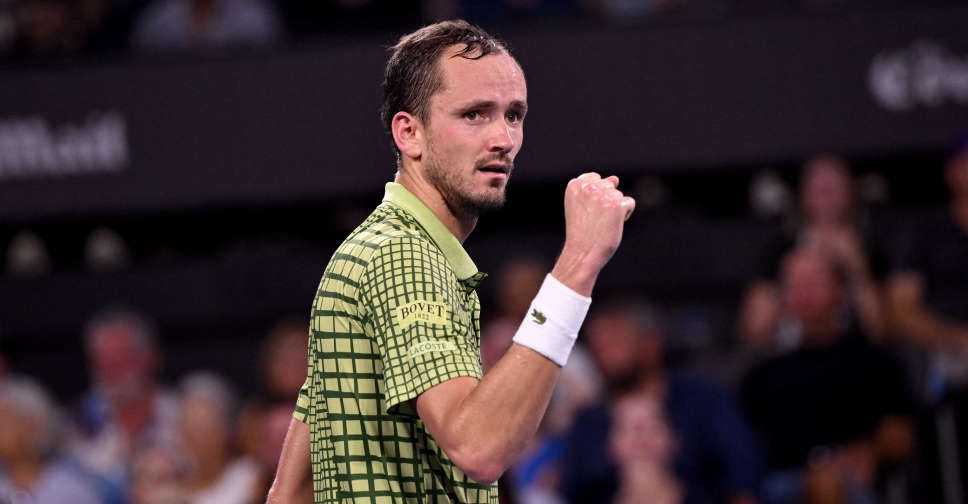 Daniil Medvedev handed Dubai title after Griekspoor withdrawal
Daniil Medvedev handed Dubai title after Griekspoor withdrawal
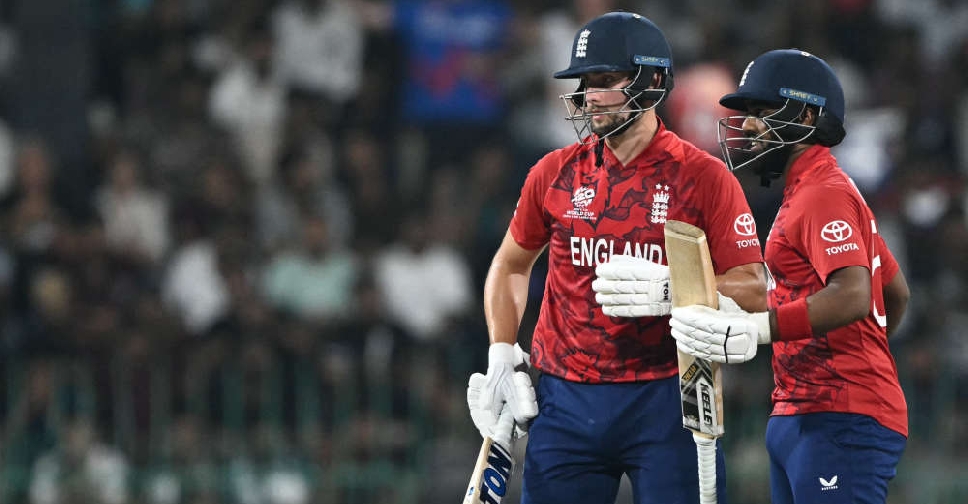 England beat New Zealand to keep Pakistan's T20 World Cup hopes alive
England beat New Zealand to keep Pakistan's T20 World Cup hopes alive
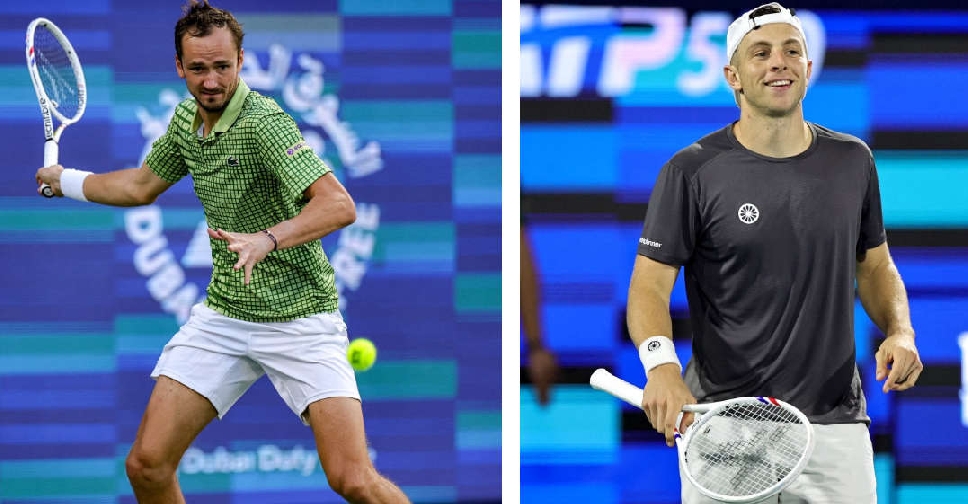 Medvedev to face Griekspoor in bid for second Dubai title
Medvedev to face Griekspoor in bid for second Dubai title
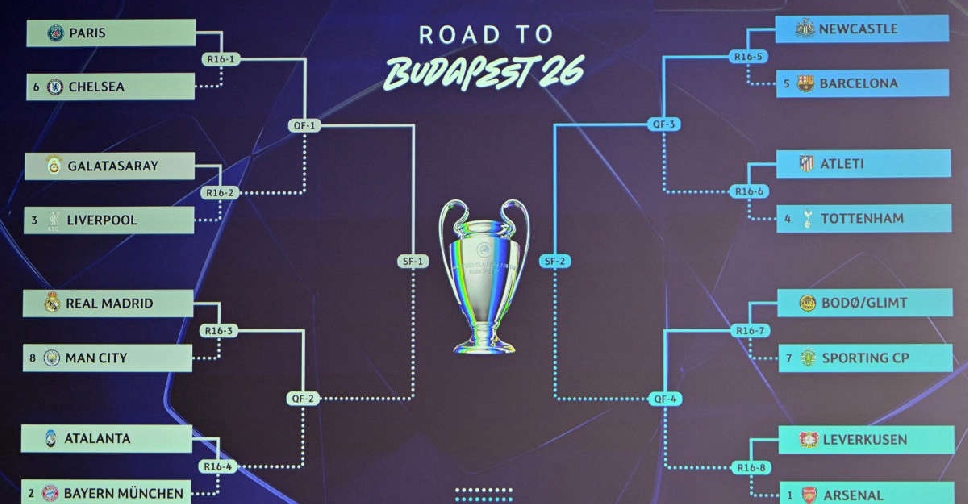 Real Madrid face Man City again in Champions League knockouts
Real Madrid face Man City again in Champions League knockouts







